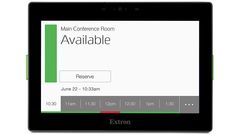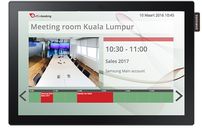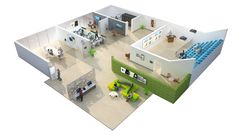x
Choose Your Country and Language
- International / English
- Germany / German
- France / French
- Italy / Italian
- Poland / Polish
- Switzerland / German
- Switzerland / French
- Spain / Spanish
- Denmark / Danish
- Sweden / Swedish
- Belgium / Dutch
- Belgium / French
- Netherlands / Dutch
- Czechia / Czech
- United Kingdom / English
- Ukraine / Russian
- Ukraine / Ukrainian
- USA / English
- USA / Spanish
Workspace Management
Workspace Management addresses the productivity and efficiency of office spaces. It covers a range of topics including: Space allocation, workspace utilization, conference room optimization, health and safety protocol, financial analysis and reporting, logistics and security. Workplace management, then, supports the overall workplace experience.

Advantages of Workspace Management
- Make the right changes to maximise utilisation
- Enable productivity for every employee
- Comply with new and existing office capacity regulations
- Reduce the burden on your IT department
- Reduce the cost of unused real estate or electricity
- Take advantage of flexible workstations
- Ensure customers/partners are served quickly and not kept waiting
- Easier planning and management of your staff
Workspace management at strategic level
At the strategic level, workplace management enables the alignment of workplace supply with corporate and workplace strategy and needs, both qualitatively and quantitatively. Every development, whether expansion, merger, the opening of new markets or cultural, demographic or human resource issues, affects the number and type of jobs needed. If, for example, the workplace strategy envisages the introduction of flexible or shared workplaces, new cooperation concepts or more work in home offices, this has a major impact on the future need for buildings, space, facilities, services and processes.
Workspace management at tactical level
At the tactical level, Workplace Management aims to successfully implement the chosen strategy, monitor utilisation and improve workplace concepts. This process includes all projects and activities that contribute to space and workplace optimisation, including the coordination of change processes.
Workspace management at operational level
Important prerequisites for successful workplace management are operational excellence and flexibility. What if employees come to the office and cannot find a free workstation, cannot book a meeting room or find the conference room occupied despite a reservation? The added value of operational workplace management is to prevent chaos in everyday work and to support employees with intelligent solutions for finding, reserving and booking the facilities they need.











